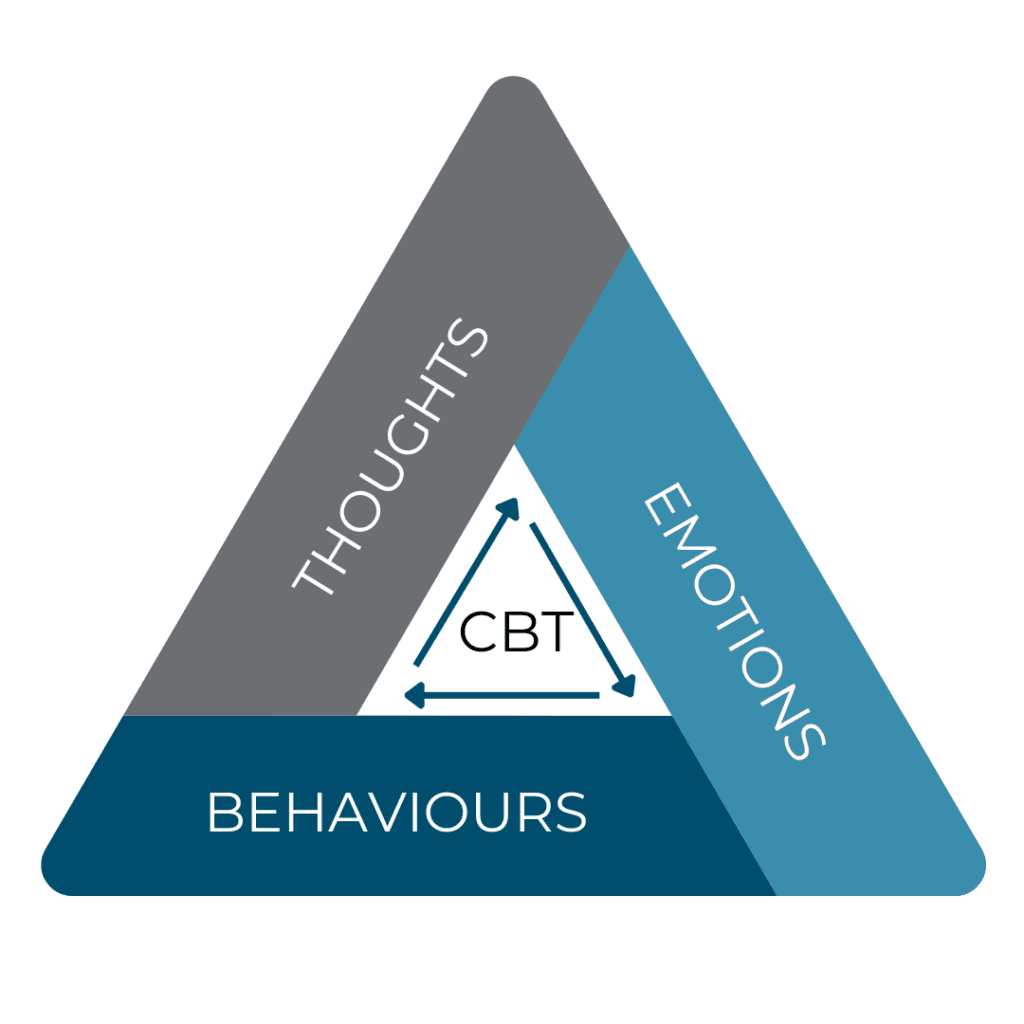How to Stay Sober After Rehab: A Comprehensive Guide
Aliya
on
February 19, 2025
Although it is achievable, it can be very difficult to stay sober if you’ve experienced a personal battle with substances, whether drugs or alcohol. Sobriety is a fundamental goal for you. You may be working towards it currently while in treatment for substance abuse. Or perhaps you have completed treatment and use the relapse prevention tools to maintain your sobriety each day. Maybe you’re still in the midst of the addiction cycle, and sobriety looks like a distant, out-of-reach desire. No matter your situation, you can learn how to stay sober through rehabilitation. During treatment, you will learn valuable skills to help you make sobriety a daily, life-long reality. Here is how to stay sober after you graduate from rehab.
What Is Sobriety?
You often hear the term sobriety as something to achieve, but what exactly does this mean? Essentially, sobriety is the state of not having any mind-altering substances in your body, including drugs and alcohol. At any given moment, you can be sober (meaning you have not taken any substances) or intoxicated. Being intoxicated means you are under the influence of substances, regardless of whether you feel high or not. But along with sobriety referring to a temporary state, it also refers to a long-term way of life. Another word for this is abstinence, which means refraining from drugs and alcohol. To be sober is to make the personal choice to avoid substances. Usually, people who achieve sobriety are those who have struggled with substance use in the past. Therefore, it takes intentional work to achieve and maintain sobriety. Individuals have to detox from substances, learn coping mechanisms for triggers, and plan for relapse prevention.
What Does It Mean to Relapse?
Relapse refers to when someone returns to substances after beginning or completing the work of recovery. It is possible to relapse at any time in your sober journey. In accordance, you could relapse after trying to quit cold turkey on your own, right after completing rehab, or after being sober for decades. Unfortunately, relapse prevention is the big ongoing goal those who have become sober continue to hold. Although there are tools and skills that can equip you, triggers will arise, and avoiding substances will be a challenge. But the best things you can do to avoid relapse are to attend rehab to build solid foundations and stay connected to a recovery support community.
Why Do People Struggle to Stay Sober After Rehab?
Staying sober after substance use is always going to be a challenge, although it won’t feel hard every day. Sobriety is a roller coaster, where some days you feel easily triggered, and other days you feel strong and powerful. There are multiple reasons why people struggle with sobriety after rehab. Sometimes, drinking or taking drugs is a coping mechanism they feel pulled to return to. This is often the case in people who develop an addiction through self-medicating with drugs or alcohol. Sometimes, people feel the social pressure to use substances, and they want to fit in. Also, since substances are addictive, the brain can still experience cravings long after achieving sobriety.
Substance Abuse and the Brain
Substances like drugs and alcohol are highly addictive. They create dependency by altering your brain messaging, so over time, you require more to function normally. For instance, substances trigger pleasurable feelings by stimulating the reward system (which releases dopamine). As your brain craves more of the feeling, you consume more and more, but still, the effect wears off over time.
Co-Occurring Mental Health Disorders
Co-occurring mental health disorders are when a person has both a substance use disorder (SUD) and a mental illness. Mental disorders and SUDs often go hand-in-hand because of the way substances alter brain chemistry. If you have co-occurring disorders, we can help you find healing for both issues together.
Get confidential help from our addiction and mental health treatment facilities located across the United States. Call to join one of our quality programs today!
Speak With Our Admissions TeamHow to Stay Sober After Rehab
It can be difficult to stay sober during substance abuse rehab. Regardless of the treatment you receive, you will experience withdrawal symptoms like cravings once you stop using substances. However, while you are in rehab, you’re surrounded by supportive medical staff and peers. Your days are structured with therapy, skills training, and optional medication management. On the other hand, you may lose a sense of your support system after rehab since your recovery progression will be largely independent. If you’re wondering why stay sober, you simply have to look at the devastating effects drugs and alcohol can have. This includes your health, relationships, finances, future goals and dreams, and quality of life. Although it’s difficult, sobriety after rehab is possible! Here are our best “how to stay sober tips.”
Aftercare
After rehabilitation, we recommend our clients move into our aftercare level of care rather than branching out on their own. Aftercare is a program for graduates of Aliya Health Group’s centers to remain connected to rehabilitation support. Understandably, returning to society after being in substance abuse treatment can be a challenging adjustment. Many people lack a strong family and friend support system that can hold them accountable after rehab. Additionally, some people can’t return to their prior life situations because they will be too tempted to relapse into drugs or alcohol. Therefore, aftercare offers multiple benefits. For one thing, it helps individuals stay connected to the skills and motivation they developed in treatment. For another, it keeps them inside a supportive community of other sober peers who understand the same struggles.
Recovery Support Groups
We help connect graduates to local recovery support groups now that they’re not attending sessions at one of our treatment centers. We are connected with a variety of support groups and can help you connect with one either online or in person. You are invited to join a recovery support group whether you return home or stay in Sober Living housing. Some of the recovery groups we can help connect you with include:
- Alcoholics Anonymous (AA)
- Narcotics Anonymous (NA)
- LifeRing
- SMART Recovery
- Secular Organizations for Sobriety (SOS)
Sober Living
Additionally, we provide various Sober Living houses near our rehabilitation centers across the United States. These are sober houses for graduates of Aliya’s substance abuse programming. In a Sober House, you will live and maintain abstinence with a group of other sober alumni. You’ll share responsibilities with other peers, like cooking, cleaning, and shopping, and you will pay rent. Also, each community has a house manager overseeing the rules that are met. Staff conduct regular drug testing to ensure compliance with sober rules. Essentially, Sober Houses mimic real-world situations but act as a unique opportunity to stay tethered in a sober community.
Establish a Support System
It’s imperative that you stay connected to a support group after rehabilitation. This is to lesser your risk of relapse. Whether you choose to return home, move into a Sober Living House, or start afresh, seek out a support community. They will be able to talk with you and hold you accountable to your own goals. Equally, if someone you love is wrapping up rehab, you want to ensure they maintain support after returning home. If you’re wondering how to help someone stay sober, a good first step is helping them find a recovery support group.
Establish a Daily Routine
One of our best tips for staying sober is to set a daily structured routine for yourself. Setting healthy habits and routines is proven to help people stay committed to their goals, including their sobriety goals. The importance of having a routine starts in childhood and still in adulthood; following a daily structure helps you stick to your goals. This is because a routine creates an ongoing healthy behavior. Thus, create a manageable daily routine that aligns with your goals of sobriety and overall wellness. For example, schedule times for work, exercise, socialization with friends or family, daily responsibilities, and personal care.
Identify and Avoid Triggers
After you leave rehab and return to social plans, be mindful of your triggers and challenges with substances. Avoid people and places that will tempt you to fall back into drugs or alcohol. For example, if you’re wondering how to stay sober from alcohol, a good place to start is to avoid plans that center around social drinking. You know a winery or brewery tasting will be triggering and make it difficult to stay abstinent. Similarly, visiting a bar can be equally as triggering. Fortunately, many places offer non-alcoholic drinks now, and you can plan ahead for some activities by bringing your own beverages. However, be honest with yourself about which activities would likely trigger you to want to fall back into drinking. Equally as important, be honest with your friends and family about your challenges. This way, they’ll be mindful about planning events that don’t center around substances. You can also take the initiative to plan a sober activity.
Practice Coping Mechanisms Learned in Recovery
Leaving rehab means you return to the “real world.” This can be a bittersweet experience as you return to your friends, family, and passions, but new hardships can arise. For example, you’re removed from many of life’s stressors while in rehabilitation, but once you graduate, you have new expectations placed on you. These might look like needing to pay rent or being invited to hang out with people who are using substances. During challenges and triggers, remember the healthy coping mechanisms you learned in recovery. You are strong and equipped with many tools and skills to keep you aligned with your goals. Reach out if you need help coping with anything after rehab.
Educate Yourself on the Dangers of Substance Abuse
Another of our recommended ways to stay sober is to remind yourself of the damage substance abuse causes. This includes damage to your mental and physical health. Also, your sense of identity, values, passions, and spiritual wellness can deteriorate when using substances. Even more, your relationships experience strain and even destruction when you abuse drugs or alcohol. Let yourself feel grounded in your motivation to remain sober by remembering the negative impacts substances had on your life.
Looking for quality treatment for substance abuse and mental health that’s also affordable? Aliya Health Group's treatment facilities accept most major insurance providers. Get a free insurance benefits check now!
Check Your CoverageHolistic Options to Help You Stay Sober
At Aliya, we believe in holistic-focused rehabilitation. Thus, we lead clients in a mixture of traditional and holistic healing options that complement each other. For example, our clients engage in behavioral therapy, medication management, and holistic therapy. Here are some of the holistic options we recommend you utilize after graduating from rehab to prevent relapse.
Mindfulness and Meditation
Mindfulness and meditation are practices that help you focus on your body and breathing. As you center yourself in the present moment, you are able to find a sense of grounding. Mindfulness and meditation are beneficial practices because they are deeply calming and restorative for the mind.
Yoga
Similarly, yoga contains elements of meditation and breathwork but also provides the physical benefit of exercise. As you move through different yoga positions, you stimulate blood flow, stretch your muscles, and relax your nervous system. Yoga for substance abuse is effective at helping you find peace in the midst of the storm.
Expressive Arts Therapy
Expressive arts therapy includes a number of different therapy activities that stimulate creativity. We recommend expressive arts therapy because of the way it allows individuals to tap into a safe, childlike desire to play or create. Often, clients experience new breakthroughs during art therapies while they let their guard down. Expressive arts therapy options include drawing, painting, dance, music, storytelling, photography, and movement.
Exercise
Undeniably, exercise has many benefits for mental health, physical health, and spiritual health. As such, exercise is a valuable addition to your routine both during and after rehab. It’s important to move your body every day, even if your personal capacity feels small some days. You will experience the benefits on your mind, spirit, and body right away. And the more you do it, the more you will create a healthy habit.
A Treatment Center Can Help You Remain Sober After Rehab
As we’ve discussed, staying sober on your own is incredibly difficult. The best way to set yourself up for a successful, sober future is to work with a professional treatment center. As mentioned, we provide an aftercare level of care to keep individuals receiving support after they graduate from treatment. Additionally, our alumni have been part of the Aliya family for a long time and can reach out for guidance at any time. The main benefits of working with professionals are equipping yourself with relapse prevention tools and receiving ongoing support. Please reach out today if you’re ready to learn how to stay sober after rehab.
Other Options for Substance Abuse Recovery
If you aren’t yet at a place where talking about sober independence feels realistic, there’s help available to you. If you’re in the midst of your struggle with substances, we can help you get to a place of recovery. Our substance abuse treatment centers are located around the United States. We can help you detox from substances and begin the inner work of healing. If you’re ready to learn how to stay sober, give us a call today to enter treatment.



















